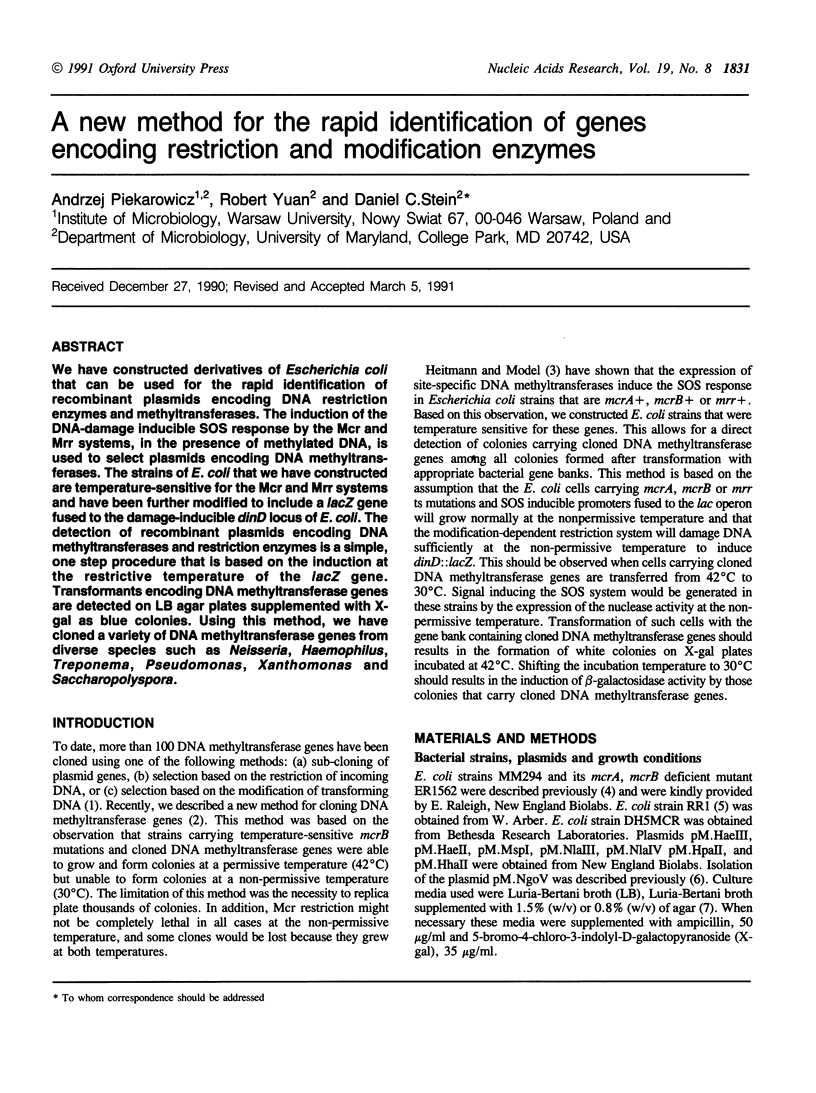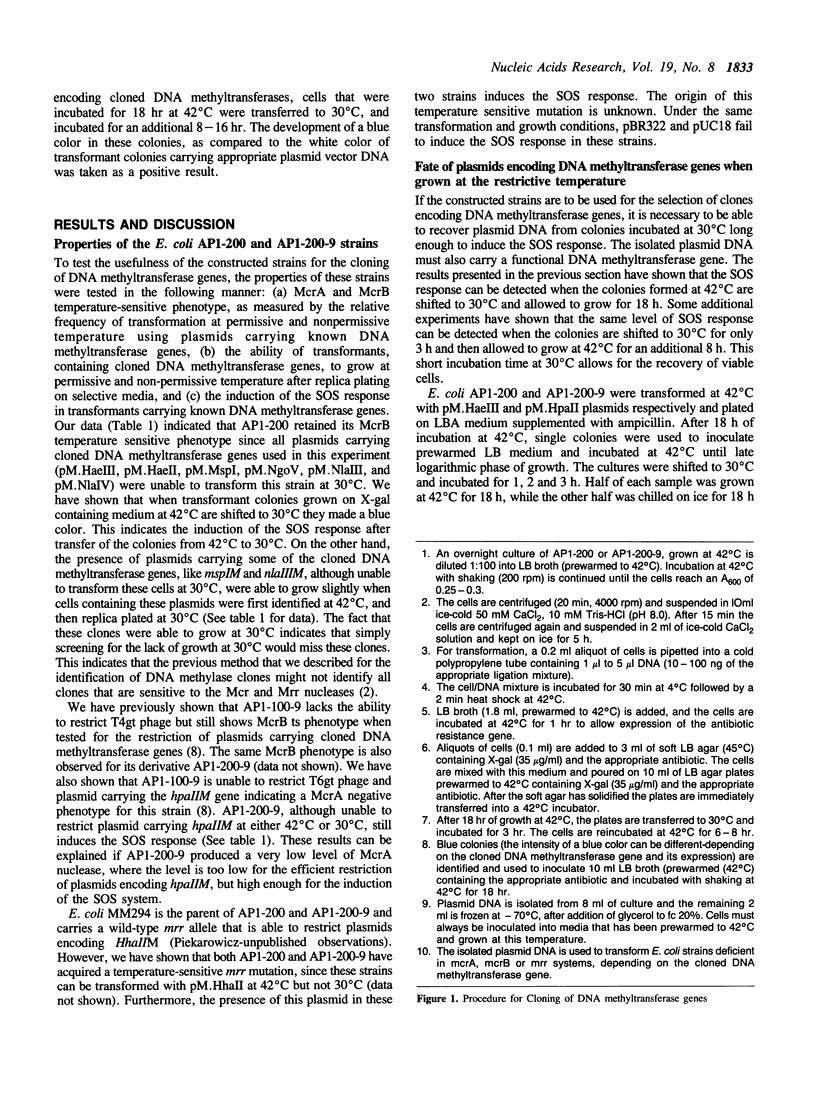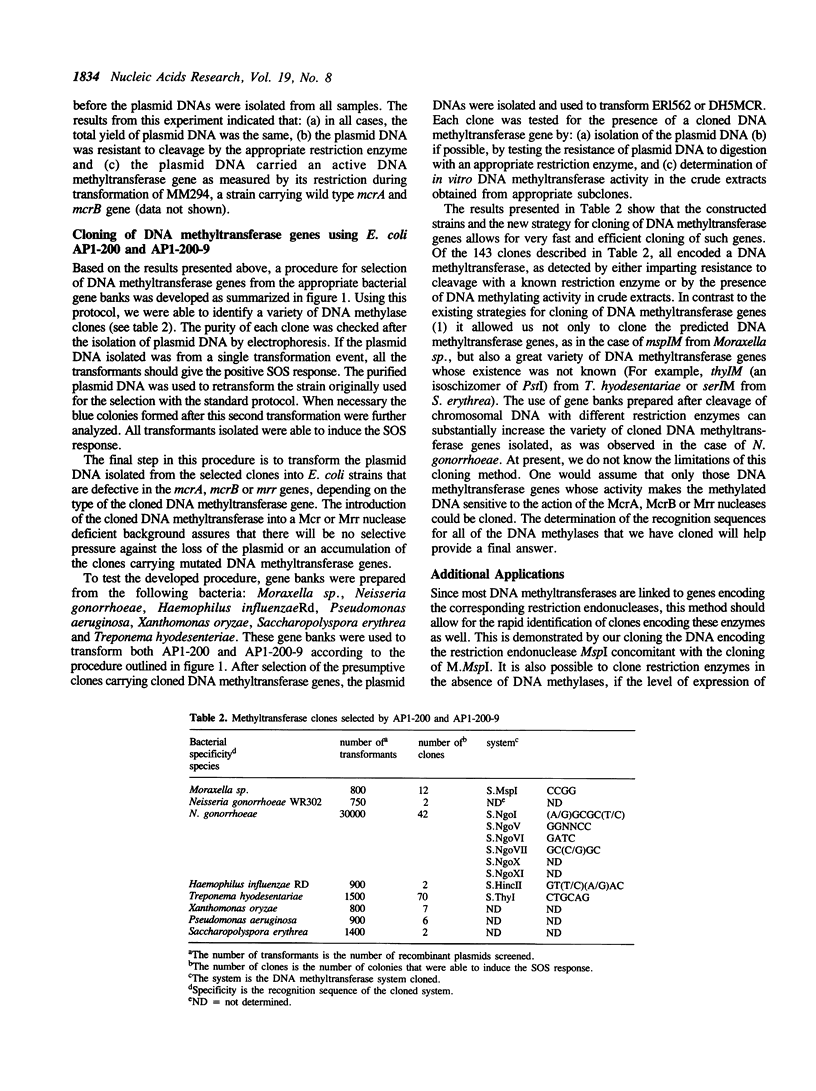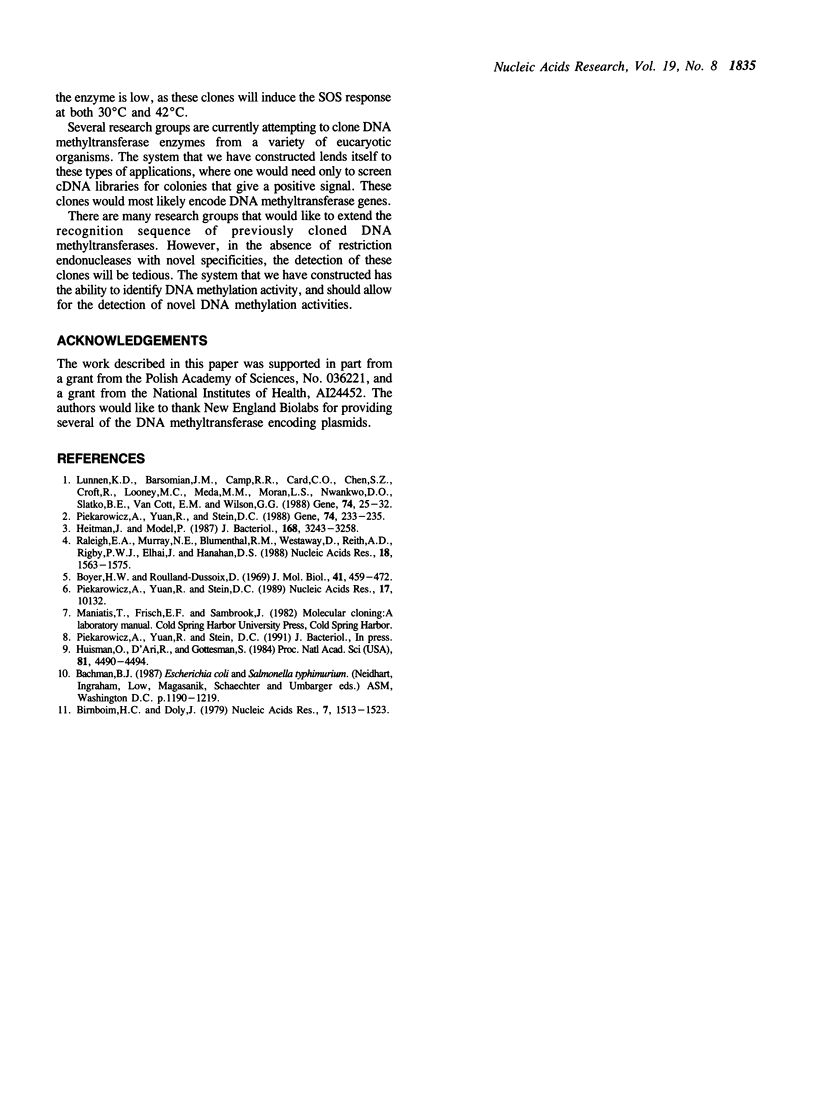Abstract
We have constructed derivatives of Escherichia coli that can be used for the rapid identification of recombinant plasmids encoding DNA restriction enzymes and methyltransferases. The induction of the DNA-damage inducible SOS response by the Mcr and Mrr systems, in the presence of methylated DNA, is used to select plasmids encoding DNA methyltransferases. The strains of E. coli that we have constructed are temperature-sensitive for the Mcr and Mrr systems and have been further modified to include a lacZ gene fused to the damage-inducible dinD locus of E. coli. The detection of recombinant plasmids encoding DNA methyltransferases and restriction enzymes is a simple, one step procedure that is based on the induction at the restrictive temperature of the lacZ gene. Transformants encoding DNA methyltransferase genes are detected on LB agar plates supplemented with X-gal as blue colonies. Using this method, we have cloned a variety of DNA methyltransferase genes from diverse species such as Neisseria, Haemophilus, Treponema, Pseudomonas, Xanthomonas and Saccharopolyspora.
Full text
PDF




Selected References
These references are in PubMed. This may not be the complete list of references from this article.
- Birnboim H. C., Doly J. A rapid alkaline extraction procedure for screening recombinant plasmid DNA. Nucleic Acids Res. 1979 Nov 24;7(6):1513–1523. doi: 10.1093/nar/7.6.1513. [DOI] [PMC free article] [PubMed] [Google Scholar]
- Boyer H. W., Roulland-Dussoix D. A complementation analysis of the restriction and modification of DNA in Escherichia coli. J Mol Biol. 1969 May 14;41(3):459–472. doi: 10.1016/0022-2836(69)90288-5. [DOI] [PubMed] [Google Scholar]
- Heitman J., Model P. Site-specific methylases induce the SOS DNA repair response in Escherichia coli. J Bacteriol. 1987 Jul;169(7):3243–3250. doi: 10.1128/jb.169.7.3243-3250.1987. [DOI] [PMC free article] [PubMed] [Google Scholar]
- Huisman O., D'Ari R., Gottesman S. Cell-division control in Escherichia coli: specific induction of the SOS function SfiA protein is sufficient to block septation. Proc Natl Acad Sci U S A. 1984 Jul;81(14):4490–4494. doi: 10.1073/pnas.81.14.4490. [DOI] [PMC free article] [PubMed] [Google Scholar]
- Lunnen K. D., Barsomian J. M., Camp R. R., Card C. O., Chen S. Z., Croft R., Looney M. C., Meda M. M., Moran L. S., Nwankwo D. O. Cloning type-II restriction and modification genes. Gene. 1988 Dec 25;74(1):25–32. doi: 10.1016/0378-1119(88)90242-9. [DOI] [PubMed] [Google Scholar]
- Piekarowicz A., Yuan R., Stein D. C. Cleavage of DNA by HaeII is inhibited by the presence of 5-methylcytosine at the second cytosine within the recognition sequence. Nucleic Acids Res. 1989 Dec 11;17(23):10132–10132. doi: 10.1093/nar/17.23.10132. [DOI] [PMC free article] [PubMed] [Google Scholar]
- Piekarowicz A., Yuan R., Stein D. C. Construction of a temperature-sensitive mutation for the direct identification of plasmids encoding DNA methyltransferases. Gene. 1988 Dec 25;74(1):233–235. doi: 10.1016/0378-1119(88)90294-6. [DOI] [PubMed] [Google Scholar]
- Raleigh E. A., Murray N. E., Revel H., Blumenthal R. M., Westaway D., Reith A. D., Rigby P. W., Elhai J., Hanahan D. McrA and McrB restriction phenotypes of some E. coli strains and implications for gene cloning. Nucleic Acids Res. 1988 Feb 25;16(4):1563–1575. doi: 10.1093/nar/16.4.1563. [DOI] [PMC free article] [PubMed] [Google Scholar]



